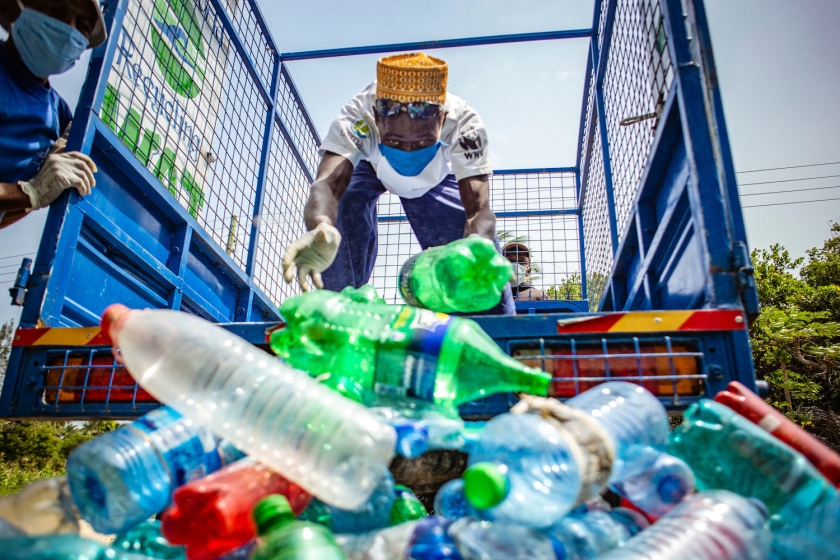
C3S: July 22 hottest day in recent history
July 22 was the hottest day on earth in recent history, according to the Copernicus ...

A report by the United Nations Environment Program (UNEP) said a life-cycle approach can reduce the volume of plastics entering the ocean by over 80 per cent and save governments $ 70 billion by 2040. It can also reduce greenhouse gas emissions by 25 per cent and create 700,000 jobs.
Experts say that recycling alone can’t end plastic pollution and that humanity needs to consume and produce less of the material. That has led to what’s known as the life-cycle approach. Along with managing plastic waste and promoting reuse, it examines how products are designed, produced and distributed and attempts to reduce the amount of plastic used along the way.
“We are not going to recycle or ban our way out of the plastic pollution crisis,” said Sheila Aggarwal-Khan, Director of UNEP’s Economy Division. “Waste collection and recycling are extremely important, but they must be part of an integrated approach.”
Negotiators at Intergovernmental Negotiating Committee (INC) are tasked with preparing measures and obligations related to the development of the legally binding treaty.
The INC secretariat has prepared an analysis of issues that revolve around four main areas needed to transition to a circular economy: eliminating and substituting unnecessary plastic and hazardous additives, designing plastic products to be reused and recycled, ensuring products are reused and recycled, and managing plastic pollution in an environmentally responsible manner.
Given the unanimous endorsement of the resolution at the UN Environment Assembly, experts are hopeful that Member States will discuss the objectives and scopes of the instrument at INC-1. This could involve agreeing to ambitious targets, legal obligations and regular monitoring and reporting. Examples of possible measures include extended producer responsibility legislation; subsidies, taxes and tariffs; and bans or restrictions on specific substances, polymers or products.
“Negotiators have the opportunity to foster innovation at this early stage in the process – looking to the future, learning from the past,” says Mathur-Filipp. “The UN Environment Assembly resolution guides the work. It’s really important to not renegotiate things that have already been agreed to.”
In conjunction with the INC-1 meeting, UNEP hosted an open multi-stakeholder forum on 26 November, where around 1,800 participants, including many stakeholders active along the plastic value chain, identified key opportunities and challenges.
“Among all stakeholders, we aimed to identify the most effective actions that Member States may wish to consider to enable their decisions to be most effective,” says Aggarwal-Khan. “This is important so that we can continue leveraging and scaling up the actions to end plastic pollution, including while the negotiations take place.”
July 22 was the hottest day on earth in recent history, according to the Copernicus ...
Google has engaged in partnership with DHL to utilize the DHL Express GoGreen Plus service ...
Mars has announced registering a record 8% greenhouse gas (GHG) emissions reduction against its 2015 ...


اترك تعليقا